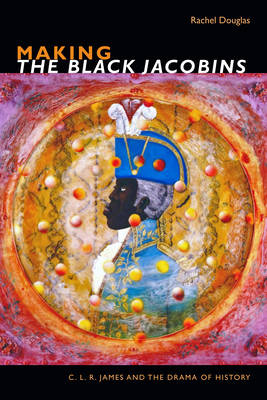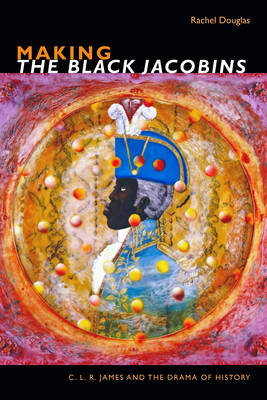
Je cadeautjes zeker op tijd in huis hebben voor de feestdagen? Kom langs in onze winkels en vind het perfecte geschenk!
- Afhalen na 1 uur in een winkel met voorraad
- Gratis thuislevering in België vanaf € 30
- Ruim aanbod met 7 miljoen producten
Je cadeautjes zeker op tijd in huis hebben voor de feestdagen? Kom langs in onze winkels en vind het perfecte geschenk!
- Afhalen na 1 uur in een winkel met voorraad
- Gratis thuislevering in België vanaf € 30
- Ruim aanbod met 7 miljoen producten
Zoeken
€ 53,45
+ 106 punten
Omschrijving
C. L. R. James's The Black Jacobins remains one of the great works of the twentieth century and the cornerstone of Haitian revolutionary studies. In Making The Black Jacobins, Rachel Douglas traces the genesis, transformation, and afterlives of James's landmark work across the decades from the 1930s on. Examining the 1938 and 1963 editions of The Black Jacobins, the 1967 play of the same name, and James's 1936 play, Toussaint Louverture--as well as manuscripts, notes, interviews, and other texts--Douglas shows how James continuously rewrote and revised his history of the Haitian Revolution as his politics and engagement with Marxism evolved. She also points to the vital significance theater played in James's work and how it influenced his views of history. Douglas shows The Black Jacobins to be a palimpsest, its successive layers of rewriting renewing its call to new generations.
Specificaties
Betrokkenen
- Auteur(s):
- Uitgeverij:
Inhoud
- Aantal bladzijden:
- 320
- Taal:
- Engels
- Reeks:
Eigenschappen
- Productcode (EAN):
- 9781478004875
- Verschijningsdatum:
- 27/09/2019
- Uitvoering:
- Paperback
- Formaat:
- Trade paperback (VS)
- Afmetingen:
- 152 mm x 226 mm
- Gewicht:
- 430 g

Alleen bij Standaard Boekhandel
+ 106 punten op je klantenkaart van Standaard Boekhandel
Beoordelingen
We publiceren alleen reviews die voldoen aan de voorwaarden voor reviews. Bekijk onze voorwaarden voor reviews.









